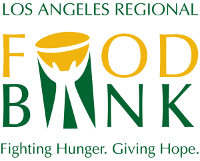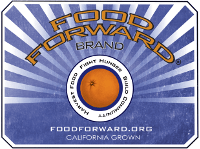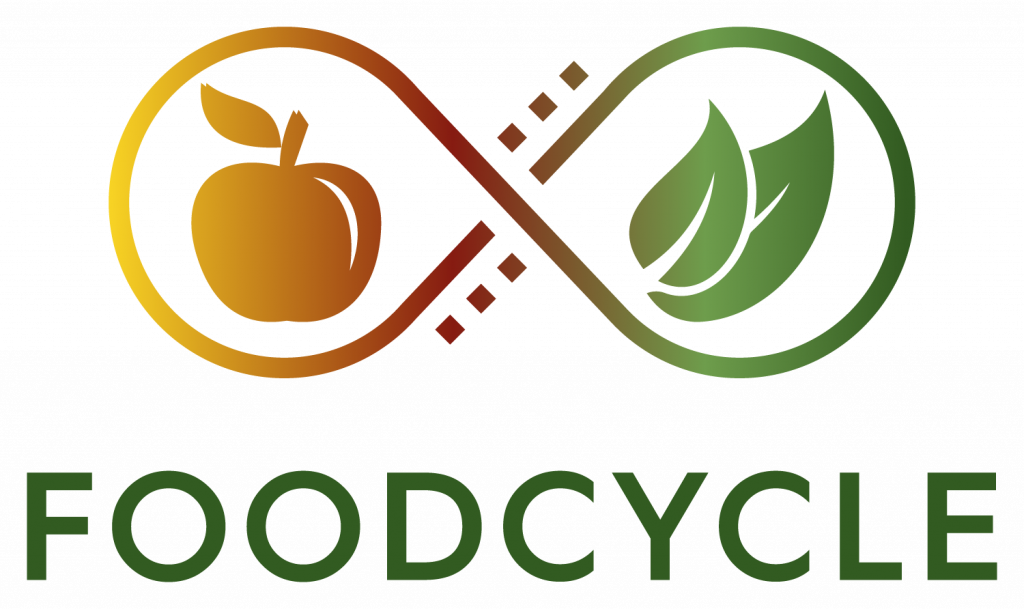
We All Deserve... Enough to Eat.
The Food Pantry
The Food Pantry provides food assistance to low-income and no-income families in the greater Pasadena and Altadena areas. We are currently providing food to over 650 households per week, totaling approximately 1,300 people. This dynamic and compassion-driven program is the largest at Friends In Deed.
Our Food Pantry is set up like a neighborhood market where our community members can come in and select their own groceries. In addition to providing shelf stable foods like canned goods, dry goods, juice, and cereal, one of our goals is to provide meat & protein, fresh fruits & vegetables, and foods that appeal to the diverse population in our community. When available, we also offer toiletries, diapers & formula, and pet food.
We have been partnering with the Los Angeles Regional Food Bank since 2008 to get food (shelf stable, fresh produce, meat/protein, dairy, bread, and more) into our community. We also work with local organizations and businesses, including Food Forward (Backyard Harvests & Distribution Hub), FoodCycle (Farmers Market), Trader Joe’s (Lake Avenue & Eagle Rock), Ralphs (La Canada & La Crescenta), Grocery Outlet – Altadena, Pavilions (Pasadena), Sprouts (Eagle Rock), SusieCakes (Pasadena), and others to rescue food, distribute it to our community, and help fight food insecurity and waste. Many of our local churches, synagogues, schools, local businesses, groups, and individuals bring donations and various food drives to Friends In Deed. We rely heavily on these in-kind donors, and their support is critical to our success.



For more information, call 626.797.6072 or email Tim Nistler, Director of the Food Pantry, at timn@friendsindeedpas.org ,
Eva Rivera, Assistant Director of the Food Pantry, at evar@friendsindeedpas.org, or
Kristina Martin, Food Pantry Manager, at kristinam@friendsindeedpas.org.
The Food Pantry is open Tuesdays and Wednesdays from 10am to 3pm, and Thursdays from 10am to 1pm. Our pantry community can visit any of the three open days, but they are only allowed to come one time per week for food. The pantry community “shop” for their groceries, meaning clients can come inside and pick the items they want for that week. There is no lining up early to be first in line. Anyone that is here by 9am, will have a chance at being first when we open, via our lottery. Anyone that comes after the lottery has started, will just put their name in the next available slot on the “Sign In” sheet.
To get registered, we require that identification be brought for each person to be registered in a family, some form of documentation with current address, and proof of low-income status. If a person does not have one, or more, of these requirements, that should not stop them from coming to get food. We will meet with each person and make sure they can get food that day.
If you know someone that would benefit from coming to the Food Pantry, please share our client flyer with them (located on the buttons below). The flyer can be cut into four and distributed freely.
Friends In Deed is located at 444 E. Washington Blvd., Pasadena, CA 91104 (on the SE corner of Washington & Los Robles).
What Food Do We Need?
- OUR GOLD ITEMS: canned tuna/chicken, hearty soups, beef stew, chili, pasta & pasta sauce, peanut butter, cereal, rice, cooking oil, flour, sugar, fruit juice, shelf stable juices, and plant based products
- Meats & proteins (we have freezers and refrigerators for storage): chicken, beef, pork, fish, prepared packaged meals, cold cuts, tofu, etc.
- Fresh fruits and vegetables – including those from your garden or fruit trees
- Dried beans, oats, other whole grains
- Eggs, milk, yogurt, cheese
- Other: canned fruits & vegetables, canned beans, jelly, soups, other baking items
- Milk (shelf stable or powder)
- Other perishable foods
- Single serve pop-top cans, chicken or tuna pouches, granola bars, Capri Sun drinks, fruit cups, jerky, crackers, and other single serving food for those experiencing homelessness in our community.
(Donations are accepted Fridays and Saturdays only, from 9am to 3pm)
If you still aren’t sure what you would like to donate, we always say, “Donate something you would like to eat, because, chances are, someone else will like it too.”
Other Items to Donate
- Pet food: dogs and cats
- Diapers – all sizes
- Baby formula
- Toiletries: soap, shampoo & conditioner, toothbrushes & toothpaste, deodorant, shaving cream & disposable razors, feminine products, hand lotion, etc.
Throughout the year, the Food Pantry partners with various groups and organizations to host events like our Back-To-School Backpack Give-A-Way, Thanksgiving’s Operation Gobbler, and “Christmas for the Kids”.
History
Launched in 1961 by local community member, Maura Moser, in her own garage in Northwest Pasadena, the Food Pantry has always been a safe haven for those who are in need of assistance in their time of need. Since 2008, the Food Pantry has seen a continuous increase in clientele and need in the community and we are pleased that we have been able to meet that need, with the help of so many in our community. The Food Pantry is run by our Pantry Director, a Pantry Manager, and a loyal and dedicated team of volunteers.
No one in need of food is turned away.
THIS IS ABOUT MORE THAN FOOD:
“In 1943 American psychologist Abraham Maslow suggested that human needs can be arranged in a pyramidal hierarchy, with life-sustaining needs like food and water at the bottom and increasingly abstract goals like self-fulfillment at the top. His five categories of needs, in order of priority, are: physiological, safety, love, esteem, and self-actualization. Basic, physiological needs must be met before people are motivated to tackle higher ones. A food-insecure person has probably neglected a host of other physical, psychological, and emotional needs in their quest for sustenance. Indeed, research has indicated that housing instability and food insecurity can lead to delays in pursuing medical care. Helping people transcend food insecurity means a return to high-quality food that can improve physical and mental wellbeing, which can create a more solid foundation for a path toward a better life. With that in mind, the ‘food first’ approach makes access to consistent high-quality food the starting point and the gateway to a broader network of support services. Access to high-quality food, along with shelter, enables people to begin addressing substance abuse and mental health issues and a panoply of other personal goals that can improve their quality of life.” (Fighting Food Insecurity In Hollywood, Oberle & Qin, 2002)
